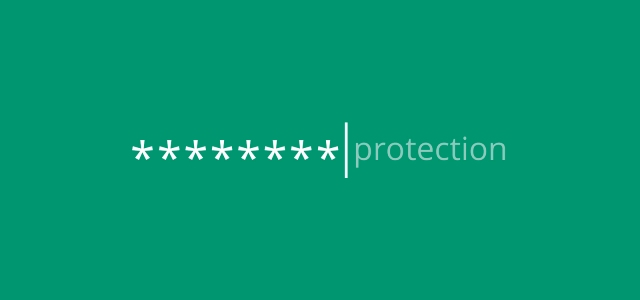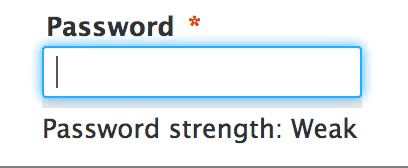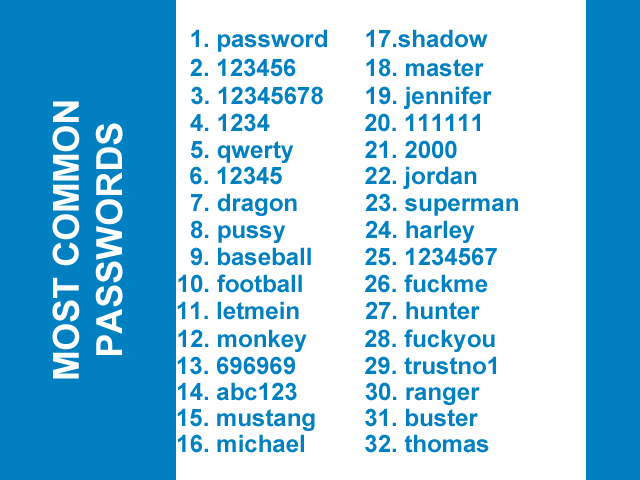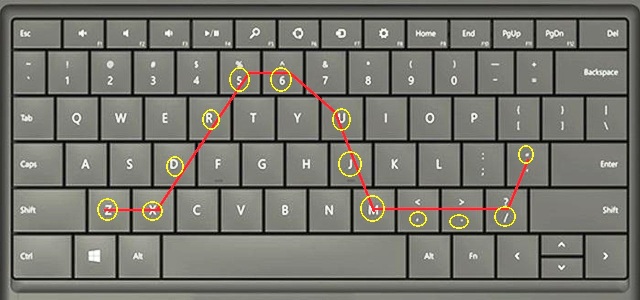
Making powerful and effective passwords seems like an almost impossible task, particularly when the idea requires you to have a special password for every single website you visit. Almost everybody is going to be ruffled by the idea of being forced to produce several passwords like 0!w3L$kNv%! and remembering them.
Since people are not used to such things, they often stick to a single password or passphrase; however, this is a dangerous thing to do. Plus, in the event your password is jeopardized, your entire online data will be exposed.

Secondly, many people use a number of passwords or passphrases that are made up of a combination of short words and figures that are related to your life; however, these passwords can easily be guessed by close friends/family or hackers that have socially engineered your information.
Furthermore, if you have created a hard to remember password or passphrase – let’s say because the website that you own wants you to create a tough password – but in order for you to remember it, you kept it on your notepad or sticky notes (on your PC), your password and information will be at risk of being hacked.
We don’t mean to scare you, but we want you to be safe. However, the main element of an effective password is its length; the lengthier the password, the harder it is to break it. A mixture of letters (upper and lower case letters), figures and special characters – minus any information that is related to you – for instance, no birthdays or telephone numbers. In addition, do not use words that can be found in the dictionary – hackers often use dictionary attacks to hack your accounts.
On a more positive note, you do not need to remember long strings of unique characters, figures or symbols to create a strong password – you just need to know a couple of techniques. The key to making a password(s) that is memorable as well as challenging to guess or break, is in the form of sentences. Yes, you read that right.
But before we being, let us take a look at the most vulnerable passwords and evaluate what makes them an easy target:-

It is important to understand that hackers use brute force attacks and dictionary attacks, etc. And many of these attacks usually work their way around common words.
- Password – The eight letter word – Password – is considered the most widely used code to lock information, making it really weak and easily guessed. This password is an ordinary word and can be effortlessly figured out or cracked by a program that uses dictionary assaults to break passwords on a daily basis.
- 12345678910 – Though this password consists of eleven numbers, since they are in a pattern, they can be easily cracked.
- F1avoR – Even though this password is a mix of letters (including upper case and lower case letters) as well as numbers, it can still be cracked easily. The password is still not long enough, and replacing the letter l with 1 is also an easy guess for a computer program – in fact, there are many online dictionaries that have such passwords custom built for the hackers to utilize.
These easy passwords won’t come in handy when you are trying to protect your account(s) from online crooks, so let’s get to the real deal. Start using a sentence and create abbreviations from the initial letters of the words.
ALSO RECOMMENDED FOR YOU: Is Your Password In Our List Of Weak Passwords?
The example below lets you use phrases that mean something to you, or you can use a sentence for every website you have an account on:-
- 2Bor|\|ot2B_Th@t!sThe? – To be or not to be, that is the question – from Shakespeare.
- h0w!M3tY0urM0th3r – How I Met Your Mother – A sitcom title, you can alter the letters in any way you want.
Make use of passwords with ordinary components, but personalize them for certain websites. The sample below tells you how to craft a password for a particular website:-
- abt2_uz_2w!t3r – About to use Twitter.
- P@$s4Acct@Fb – Password for account at Facebook
Play around, work with your keyboard, type random keys, and see what results you come up with. You can then enhance your password creation by altering the results with numbers and special characters.

zxdr56ujm,./’ is, in fact, a tricky password to remember, unless you create an image of the keyboard and draw lines on it. Use your imagination to draw a number, a wave, shape, or draw a smiley face on your keyboard and then, in the end, alter the results with special characters, numbers, and letters (upper and lower case).
So, now you are equipped with the tricks and knowledge for making an effective, powerful, lengthy and unforgettable password.
Source: Info World
You want to support Anonymous Independent & Investigative News? Please, follow us on Twitter: Follow @AnonymousNewsHQ
This Article (Tips And Tricks For Creating Strong Passwords) is free and open source. You have permission to republish this article under a Creative Commons license with attribution to the author and AnonHQ.com.





Way ahead of you guys 😛
Using Shakespeare is really not a good advice.
Passwords are all about entropy.
Use Diceware. You take a list of 2000 words. Using a dice you pick 6 of them. This is 2000^8 possibilities assuming the adversary knows you used diceware. If the adversary doesn’t know, well that’d be about 24^40.
Of course, passwords suck. No one wants to remember all of these things and type them multiple times a day. So use KeePass. Put a strong password on the database using diceware and let KeePass take care of generating and storing high entropy random strings of gibberish that it can autofill with a simple shortcut (it looks at the title of your browser tab to determine what account to use). Entirely open-source of course.
There are so many things incorrect in this article, I don’t even know where to start…
Length is NOT the most important thing in making a password stronger, as mentioned above, entropy is.
Passwords like the recommended “h0w!M3tY0urM0th3r” are only SLIGHTLY more secure than “howImetyourmother”. EVERY password guessing / cracking tool will try to substitute “leet speak” like using a 3 in place of an E and so on.
Also, using a reference to the website itself in the password is a terrible idea. Humans are lazy, and if you get in the habit of creating passwords like “abt2_uz_2w!t3r” it is very likely that you will then use “abt2_uz_fb” for FaceBook, “abt2_uz_Gm@il” for GMail, and so on. Once 1 of these passwords is compromised, it is going to be easy to guess all your other passwords.
Either use the diceware method as mentioned above, or use a good password vault application and generate long random passwords.
And it is simply ridiculous that nowhere in this article do they recommend or even talk about two-factor authentication. You should ALWAYS enable two-factor authentication.